By alphacardprocess May 29, 2025
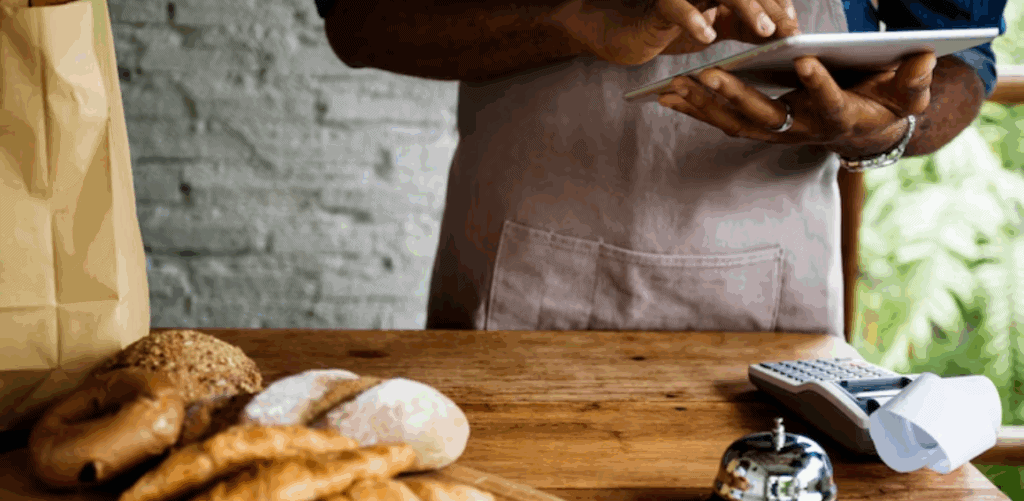
A Midwestern bakery had to throw away hundreds of loaves of bread. Why? They recieved a batch of yeast from their supplier that proved to be contaminated. Not knowing which products had used that yeast, they had to recall everything. Costly. Stressful. Avoidable.
That’s where lot numbers enter the picture.
As a baker (whether you run a small kitchen or a commercial bakery), lot numbers may well be the last thing in your mind. But they matter. A lot. They assist you in tracing every ingredient, every batch, every product that goes out the door.
In this post, you will discover what lot numbers actually are, why you should care about them at your bakery, and when they do and don’t help.
What Is a Lot Number in Baking?
A lot number is a simple code that links your baked goods to a specific batch. It tells you when something was made, what went into it, and where it came from. Think of it as your product’s fingerprint.
Lot numbers are useful for three big things:
- Quality control, so you can monitor consistency.
- Creates inventory that ensures you don’t lose or confuse anything.
- Recall management, in case something goes wrong.
There is no universal format. Some bakeries use codes based on the date, for example 052924 for May 29, 2024. Others opt for an alphanumeric code.
The key? Implement a system that works for you, keeps everything traceable but that doesn’t get overwhelming.
Here’s an example of what lot numbers might mean in real life:
- L052924A — One, baked on May 29, lot number A
- 230149B The 149th day of 2023, shift B
- BRD20240529-01 — Bread, date, lot 01
Most large bakeries are on automatic. They’d code for virtually every run, often with shift or machine info as well.
Smaller bakeries? You could even handwrite or print basic codes directly on the label or packaging. It’s in a simpler format, but the main goal is traceability.
Why Lot Numbers Matter for Bakers?
Ensuring Food Safety
Let’s be honest — things can go sideways in any well-operated kitchen. One batch of bad eggs, one adulterated ingredient or one packaging mix-up. Hence, when that occurs, lot numbers let you act quickly.
You can see precisely which products are involved. No guesswork. You don’t have to strip everything off the shelves. Only the specific batch that included the problem ingredient.
It is that kind of control that can help save your bakery’s reputation and protect your customers.
Legal and Regulatory Requirements
If you’re a commercial baker in the U.S., the FDA wants you to keep up with your products. Lot numbers are a big part of that. They help demonstrate that you are adhering to safety standards and documenting it.
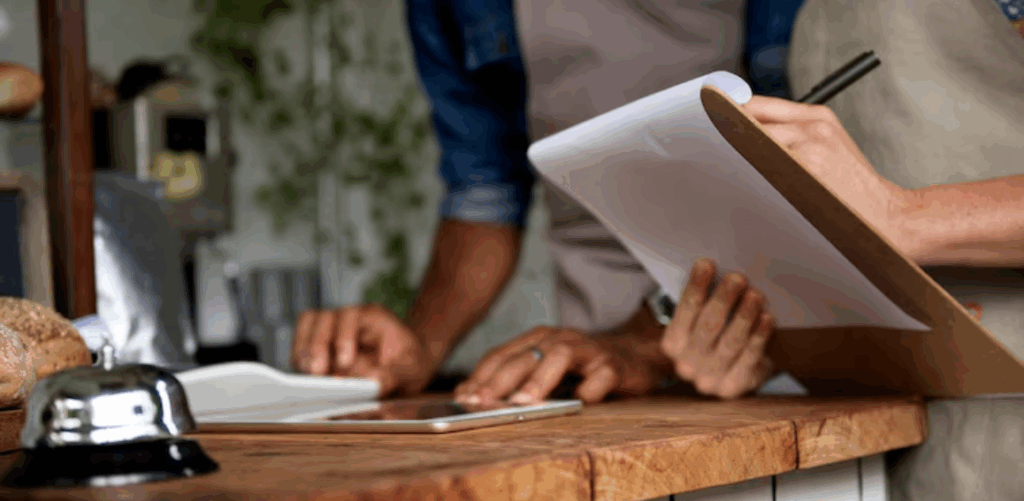
Food businesses must comply with stringent traceability regulations. You should know where your ingredients are from and where your goods go.
Even if you are baking under cottage food laws, though, lot numbers might be a smart move. Some states need them for specific items or wholesale sales. Either way, they demonstrate that you care about food safety.
Plus, if are taking payments and particularly if you are taking them online and/or through card you need reliable payment processors. You must also learn why you start accepting contact less payments. They tend to maintain accurate product tracking and recording too. Payment processors want to see your business handles transactions professionally and reliably, which ties back to how well you manage your product data, including lot numbers. It all adds up to smoother audits and fewer headaches.
Business Efficiency and Inventory Management
Lot numbers aren’t just about safety. They keep your back kitchen organized.
You’ll know what got made, when and with what ingredients. That helps you rotate stock correctly and reduce waste. It supports FIFO (first-in, first-out) systems so older ingredients get used first.
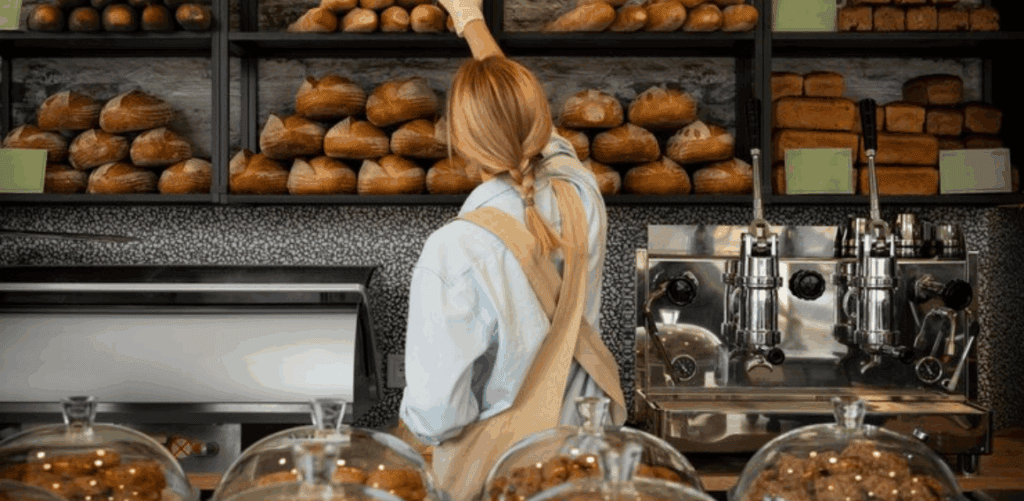
And if there’s a problem, a retailer can trace the product history easily to find the source. That sort of information can save time, money and hassle.
Building Customer Trust
Lot numbers make you look authentic. Simple as that.
They demonstrate to customers and wholesale buyers that you care about safety and traceability. If you sell online, at markets or to cafes, having lot codes can distinguish you.
The public trusts companies that are transparent. A little code on a package of cookies may not look like anything, but it says to your buyer that they are in good hands.
When Do Bakers Need to Use Lot Numbers?
Selling at Scale
If you sell at farmers’ markets, wholesale or online, lot numbers are a must. Many retail partners and grocery stores ask you to look into your batches. It allows them to keep track of what they have on hand and stay safe.
And when you accept payments, especially with card readers or online gateways, you need to remain compliant with PCI DSS. That includes maintaining detailed records of your sales and products. Lot numbers also help you associate payments to batches for easier audits and reporting.
Using Perishable or Allergenic Ingredients
If your recipes incorporate nuts, dairy, eggs or gluten, lot numbers are your best friend. They allow you to track specifically which ones have these ingredients.
That’s important in case there is ever a cross-contact or allergy issue. You can immediately let customers know which items are safe and which are not. This type of vigilance builds trust and ensures everyone’s safety.
In Case of Recalls or Quality Complaints
Things go wrong even in the most well-equipped kitchens. Lot numbers allow you to determine which batches are implicated.
That way you can pull just the products that are important not your entire inventory. It’s a money-saver and damage-controller when it comes to your bakery’s reputation.
Exporting or Selling Across Borders
Selling outside your local area? Some countries demand elaborate import documentation.
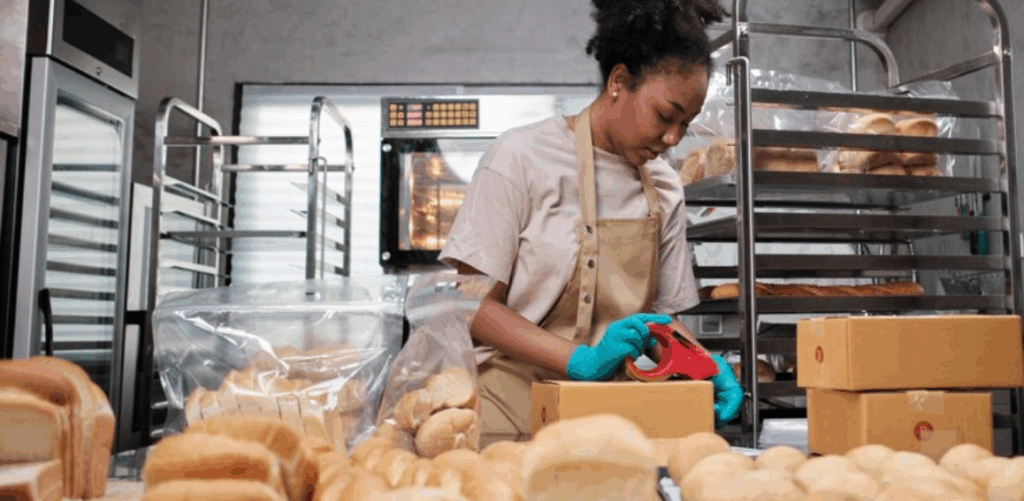
This is one of the reasons lot numbers are so great. They demonstrate your products comply with the safety and traceability rules, so you can avoid delays and penalties.
How to Create and Use Lot Numbers?
Simple Lot Numbering for Home or Cottage Bakers
If you bake from home or a small kitchen, don’t stress. Start simple. Use the date plus a short product code. For example, 052924-CK for cookies baked on May 29, 2024.
Keep a spreadsheet to track each batch. Note the date, product, ingredients, and lot number. This helps if you ever need to check back.
Commercial Systems for Lot Numbering
Running a bigger bakery? There are lots of tools to help. ERP and POS systems often include batch tracking features. You must do your research and choose the perfect POS system for your business.
You can even use barcodes or QR codes on your packaging. These automate tracking and make scanning faster during shipping or sales.
Best Practices for Assigning Lot Numbers
Pick a clear, consistent format and stick with it. Avoid repeating numbers to prevent confusion.
Make sure your lot numbers are easy to read—avoid smudged handwriting or tiny print.
Keep your records for at least 6 to 12 months. That way, you can trace batches if issues pop up later.
Labeling Guidelines and Compliance Tips
Where to Place the Lot Number
Put the lot number somewhere visible—on your packaging, labels, or invoices.
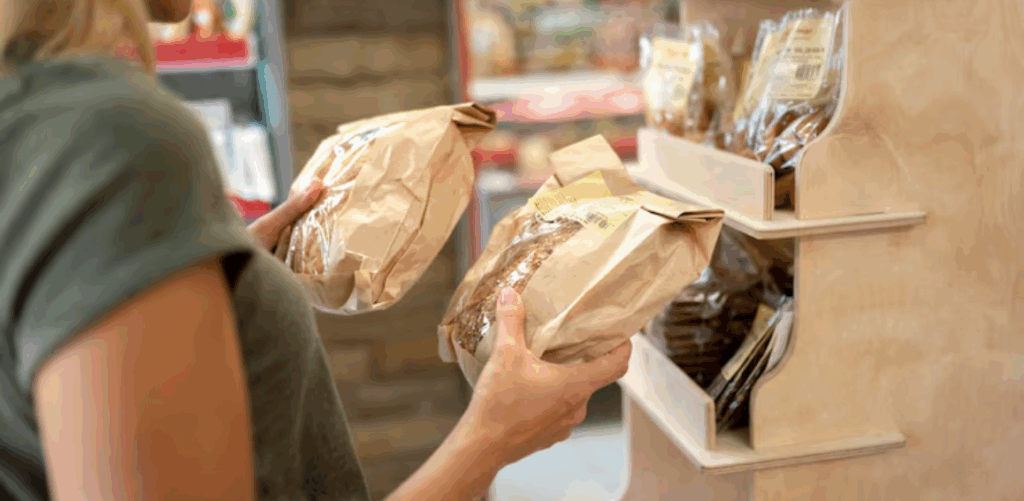
Regulators want to see it easily, so don’t hide it in small print or on the bottom of a box.
Including Lot Numbers in Ingredient and Product Logs
Keep detailed logs of what ingredients you use in each batch. If a supplier issue arises, you can quickly cross-reference and track affected products.
This record-keeping helps protect you and your customers.
Common Mistakes Bakers Make with Lot Numbers
Not Using Them Consistently
Skipping lot numbers or using informal methods creates big risks. You can’t track products well and lose control during recalls or complaints.
Poor Record-Keeping
If your records are messy or incomplete, you won’t respond quickly to problems. This can also lead to regulatory violations.
Confusing Lot Numbers with Expiry or SKU
Lot numbers aren’t the same as expiry dates or SKU codes.
- Lot numbers track batches.
- Expiry dates tell when products go bad.
- SKU codes identify products in inventory.
Mixing these up causes confusion. Keep them clear and separate.
Benefits Beyond Compliance
Data-Driven Production Decisions
Lot numbers do more than keep you compliant. They help you understand your business.
You can spot patterns—like which batches sell faster or get repeat complaints. That’s valuable insight.
It helps you adjust recipes, reduce waste, and manage ingredients more efficiently. You’ll bake smarter, not harder.
Operational Transparency
Lot numbers also make your operations more transparent. If an audit happens, you’ll be ready.
Need to track an ingredient issue back to a supplier? Easy.
This kind of clarity isn’t just for big bakeries. It sets you up for growth. When you’re ready to scale, your systems already work like a pro’s.
Conclusion
Lot numbers aren’t just red tape. They protect your bakery, your customers, and your brand.
Whether you’re baking in your kitchen or running a busy bakery, using lot numbers shows you’re serious. It’s a sign of care, trust, and real professionalism.
Frequently Asked Questions
1. Do I need lot numbers if I only sell at farmers’ markets?
Yes—especially if you use allergens or plan to scale. It’s a smart habit.
2. Can I create lot numbers manually?
Absolutely. A simple code like date + product type works well.
3. What if I use a POS system—can it track lot numbers?
Many POS systems have this feature or can integrate with inventory tools.
4. Are lot numbers required for online bakeries?
Usually yes, especially if you ship across regions or deal with health regulations.
5. What’s the difference between a lot number and a barcode?
A lot number tracks a batch. A barcode tracks a product. You can use both for extra accuracy.